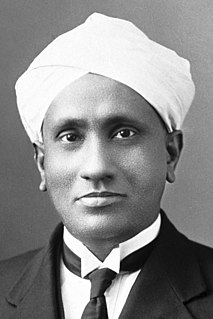A Quote by Marq de Villiers
All over East Africa-indeed, all over Africa-it is normal for people to walk a kilometer or two or six for water. In more arid areas, people walk even greater distances, and sometimes all they find at the end is a pond slimy with overuse. More than 90 percent of Africans still dig for their water, and waterborne diseases such as typhoid, dysentery, bilharzia, and cholera are common. The bodies of many Africans are a stew of parasites. In some areas the wells are so far below the earth's surface that chains of people are required to pass up the water.
Related Quotes
Water is one of the most basic of all needs - we cannot live for more than a few days without it. And yet, most people take water for granted. We waste water needlessly and don't realize that clean water is a very limited resource. More than 1 billion people around the world have no access to safe, clean drinking water, and over 2.5 billion do not have adequate sanitation service. Over 2 million people die each year because of unsafe water - and most of them are children!
The people and the cultures of what is known as Africa are older than the word 'Africa.' According to most records, old and new, Africans are the oldest people on the face of the earth. The people now called Africans not only influenced the Greeks and the Romans, they influenced the early world before there was a place called Europe.
You might not see climate change as an immediate threat to your job, your community, or your families," Kerry said. "But let me tell you, it is." He continued, "climate change is directly related to the potential of greater conflict and greater instability. I'm telling you that there are people in parts of the world - in Africa today, they fight each other over water. They kill each over it. And if glaciers are melting and there's less water available and more people, that is a challenge we have to face.
After the Moslem Africans lost control over Spain, they began to prey on the Africans further to the south. They destroyed the great independent states in West Africa, and subsequently set Africa up for the Western slave trade and the Arabs were in the slave trade before Islam and they are still in the slave trade.
War over water would be an ultimate obscenity. And yet, unfortunately it is conceivable... Water has been a source over so many years of erosion of confidence, of tension, of human rights abuses, really, of so many in areas whose traditional water supplies have been controlled and depleted by occupational authorities. That must stop if we're going to be able to develop a climate for peace.
To an observer situated on the moon or on one of the planets, the most noticeable feature on the surface of our globe would no doubt be the large areas covered by oceanic water. The sunlit face of the earth would appear to shine by the light diffused back into space from the land and water-covered areas.
Momma said that ghosts couldn't move over water. That's why Africans got trapped in the Americas.. They kept moving us over the water, stealing us away from our ghosts and ancestors, who cried salty rivers into the sand. That's where Momma was now, wailing at the water's edge, while her girls were pulled out of sight under white sails that cracked in the wind.
People usually consider walking on water or in thin air a miracle. But I think the real miracle is not to walk either on water or in thin air, but to walk on earth. Every day we are engaged in a miracle which we don't even recognize: a blue sky, white clouds, green leaves, the black, curious eyes of a child -- our own two eyes. All is a miracle.
I attend many functions, go to different areas, you wouldn't have heard any political comment from me. If I go to a government function, I talk about government related topics. If I attend a Railway's function I talk about railways, if water then water, if water bodies, then water bodies. My focus is on governance.
The truth is that Africa is like everywhere else. There are poor areas, there are rich areas, there is a middle class. Some of those areas are bigger in one country than another, and some countries have real problems that they're working through. But there's great people, good people and a small percentage of bad people - just like everywhere else.





































